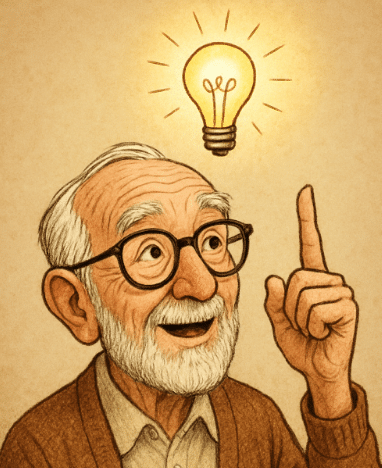Written by Simrin Pardal
Every day, over 400 Canadians develop Dementia.1 Even more common is living with mild cognitive impairment, which can develop into Dementia.
Issues with memory, language, attention, orientation, problem-solving, and decision making can all be signs of cognitive changes.
Cognition relates to the mental processes involved in acquiring and learning from information and then choosing how to use that information to interact with our surroundings.
Occasional lapses, such as leaving grocery bags in the car, are a normal part of daily life. However, when such lapses occur more frequently and across multiple domains of cognitive, they may be indicative of age-related cognitive decline.
These changes may occur suddenly and be drastic, such as not recognizing a loved one, or they may be gradual and subtle, such as having trouble finding a word.
When changes in cognition occur slowly, they can be hard to notice. Friends and family members may not pay much attention to minor changes, especially if they are not living with the individual.
Occupational Therapists can conduct assessments such as the Montreal Cognitive Assessment (MoCA) and the Allen Cognitive Level Screen, to test multiple cognitive domains, which provide insight into an individual’s current functioning.
How can we prevent or delay age-related cognitive decline?
Regular mental stimulation has been found to be important for cognitive health. Daily exercises such as brain games like riddles, sudoku, mazes, word searches, and puzzles are beneficial and can be easily integrated in one’s routine without becoming a burden.
Although these exercises may seem similar in that they all impose cognitive challenges, each one is designed to target different areas of our brain. For example, word searches can improve visuospatial skills, while sudoku targets executive functioning and problem-solving.
It is important to keep multiple forms of mental stimulation to target different cognitive domains and not make exercises too predictable. Journaling, reading, listening to music, and socializing, are also forms of mental stimulation. Physical exercise, such as light walking for 30 minutes a day, can improve brain functions as well.
Playing a game of chess or Mahjong with a friend can stimulate executive functioning skills, as it requires management of strategic decision-making while simultaneously engaging in conversation.
Memory aids such as calendars, to-do lists, reminder apps, and labels can be helpful to integrate into your routine so that these cues become automatic. For instance, you may keep track of your grocery list on an app on your phone as opposed to a paper copy on the fridge, so you don’t forget to grab it.
While it may not be obvious, our cognitive health is associated with our physical and mental health.
Our physical health is important in keeping our brain healthy. Managing your diet, ensuring you are getting enough sleep, and engaging in exercise, such as yoga or Tai Chi, all play a role in your physical health and well-being, and therefore your cognitive health too.
Moreover, managing stress levels and mental health concerns is also key in encouraging your cognitive health. Your brain and body are aware of these changes, thereby impacting your cognition.
At GLA Rehab, our Occupational Therapists provide cognitive assessments and interventions. We can work with you to create compensatory strategies and remediation exercises, targeting your needs and helping you achieve your goals of maintaining your independence with daily tasks at home and in the community, and reducing the need for paid help.
References
[1] Alzheimer Society of Canada. (2025). Dementia numbers in Canada. https://alzheimer.ca/en/about-dementia/what-dementia/dementia-numbers-canada
[2] Logic Rehabilitation. (2025, April 22). Cognitive Rehabilitation: How Occupational Therapy Supports Seniors with Memory Challenges. https://logicrehab.ca/ot-vancouver-bc-seniors-cognitive-rehabilitation/

